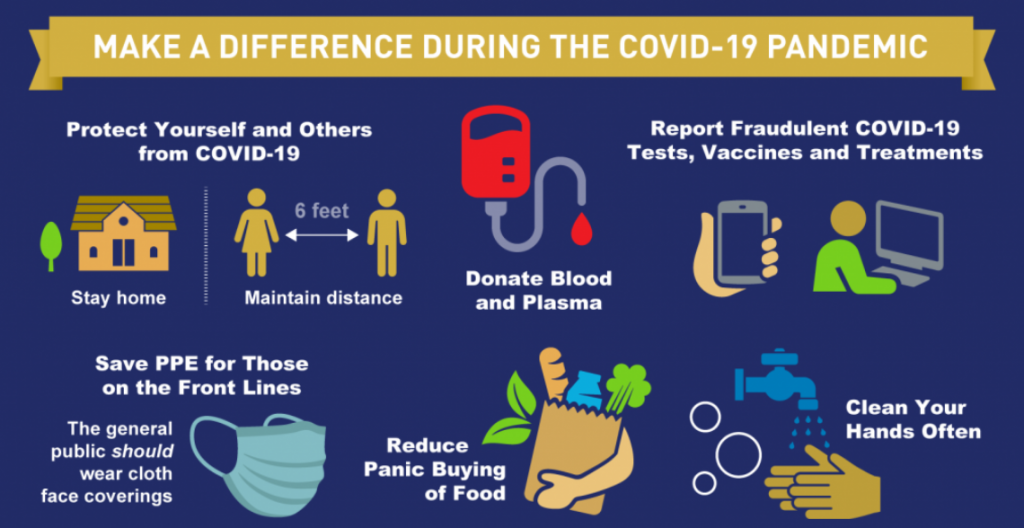The original story can be found on the U.S. Food & Drug Administration website.

The COVID-19 pandemic has created challenges in our everyday lives. As we each do our part to help slow the spread of coronavirus disease, we look to the helpers all around us and wonder if we, too, could do more.
Here are some ways you and your family can help.
Protect Yourself and Others From Coronavirus
Because COVID-19 has never been seen in humans before, there are currently no vaccines to prevent or drugs to treat COVID-19 approved by the U.S. Food and Drug Administration. The best way to prevent illness is to avoid being exposed (or exposing others) to this virus. How? Stay home as much as possible. Avoid close contact (about 6 feet) with people, even if they don’t appear sick. Some people without symptoms may be able to spread the coronavirus.
Learn how to protect yourself and others from coronavirus.
Another way to make a difference is to donate blood if you are able. The U.S. blood supply is facing unprecedented challenges and shortages. Donor centers have experienced a dramatic reduction in donations because of social distancing and canceled blood drives. Maintaining an adequate blood supply is vital to public health. Blood donors help patients of all ages and kinds – accident and burn victims, heart surgery and organ transplant patients, and those battling cancer and other life-threatening conditions. The American Red Cross estimates that every two seconds, someone in the U.S. needs blood.
If you are healthy and feel well, contact a local donation center to make an appointment. Donation centers are taking steps to make sure donation is safe.
Read more tips here.
